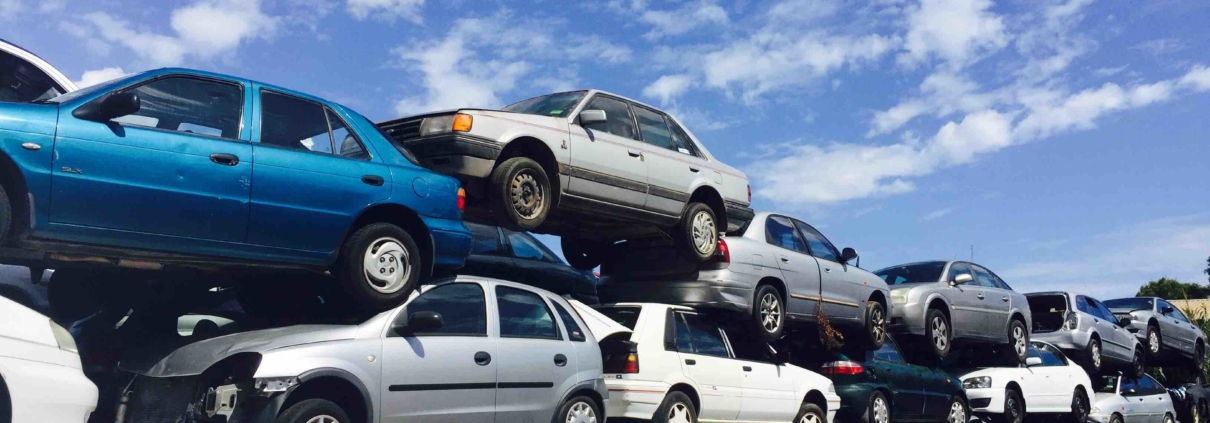VIC Car Scrap Yards: The Hidden Economic Powerhouse
VIC car scrap yards process end-of-life vehicles into valuable resources, driving economic growth in Victoria. These facilities handle dismantling, recycling, and resale of parts, turning waste into revenue. This guide uncovers their role as an economic powerhouse, benefiting jobs, industries, and the environment. Understanding this helps Victorian residents appreciate the value in scrapping old cars.
In Australia, 500,000 vehicles reach end-of-life annually, with Victoria contributing a significant share due to its 4.5 million registered vehicles. Scrap yards recycle 75 percent of materials, supporting a $4.5 billion metal recycling market by 2025. Owners gain cash, while the state sees broader economic gains.
What Are VIC Car Scrap Yards?
VIC car scrap yards are licensed facilities that dismantle and recycle vehicles no longer roadworthy. They accept cars, trucks, and vans, assessing value based on parts and metal content. In Victoria, these yards operate under strict EPA guidelines, ensuring safe handling.
Workers remove usable components like engines and doors for resale, then crush the frame for metal recovery. Yards process thousands of vehicles yearly, with Melbourne alone handling 40,000 tonnes of scrap metal annually. This operation keeps roads clear and resources circulating.
These yards vary from small local sites to large industrial ones. All contribute to Victoria’s circular economy.
The Economic Impact of Scrap Yards
Scrap yards create jobs in Victoria, employing over 2,000 workers in dismantling, sorting, and transport. This supports local families and reduces unemployment in manufacturing hubs like Dandenong.
Revenue flows from selling recycled metals and parts, contributing to Victoria’s $10 billion recycling economy. Yards buy vehicles for $200-$4,000, injecting cash into households. This boosts spending in retail and services.
Recycled materials lower costs for manufacturers, cutting new steel prices by 20 percent. In 2020-21, Australia recycled 4,794 kilotonnes of metal waste, with Victoria leading through efficient yards. This saves industries millions in imports.
For reliable service, Best Cash for Cars provides quick assessments and fair payments. Their focus on compliance and efficiency makes them a practical choice for Victorian sellers. Learn more
Economic gains extend to the environment, linking the two closely.
Environmental Benefits in Victoria
Scrap yards in Victoria reduce landfill waste by 1.5 tonnes per vehicle. This preserves space and prevents pollution in areas like Port Phillip Bay. Recycling metals saves 60 percent energy compared to new production.
Yards handle hazardous materials safely, recycling 85 percent of batteries. Fluids like oil get treated, avoiding waterway contamination. Victoria’s 60 percent overall waste recycling rate benefits from these efforts.
Parts resale cuts demand for new manufacturing, lowering CO2 by 1.2 million tonnes nationally. Local yards support biodiversity by reducing mining impacts.
| Benefit | Victoria Impact |
|---|---|
| Landfill Savings | 1.5 tonnes per vehicle |
| Energy Reduction | 60% for recycled metals |
| Battery Recycling | 85% processed |
| CO2 Cuts | Supports national 1.2M tonnes |
Environmental wins fuel further economic growth.
How Scrap Yards Operate
To operate a scrap yard in Victoria, obtain licenses from Consumer Affairs Victoria under the Second-hand Dealers Act. Yards must register with police for scrap metal laws, banning cash payments to curb theft.
Daily operations start with vehicle intake and inventory. Technicians drain fluids and remove batteries first. Usable parts get cataloged for sale, while frames crush into bales.
Yards use shredders for efficient processing, sorting metals via magnets. In Melbourne, advanced facilities handle 50 vehicles daily. Compliance with EPA ensures no spills or emissions.
If you want to learn more about how vehicle buying services work in Melbourne, you can visit https://www.bestcashforcarz.com.au/used-car-buyer/
Regulations for VIC Scrap Yards
Regulations in Victoria require scrap yards to follow the Environment Protection Act 2017. Operators need EPA approvals for waste handling, with fines up to $100,000 for violations.
The Scrap Metal Industry laws mandate electronic payments and record-keeping. Yards report transactions to prevent stolen vehicle recycling. Owners deregister via VicRoads within 14 days to avoid $500 fines.
Annual inspections enforce standards. These rules protect consumers and the environment.
| Regulation | Requirement |
|---|---|
| EPA Approval | Waste handling permits |
| Payment Ban | Electronic transfers only |
| Record-Keeping | Police reporting |
| Deregistration | Within 14 days |
Strong regulations build trust. Challenges test the industry’s resilience.
Challenges Facing VIC Scrap Yards
Scrap yards face fluctuating metal prices, impacting payouts. Global drops reduce offers, though Victoria’s yards adapt by diversifying into parts sales.
High vehicle volumes, with 4.5 million registered, strain capacity during peaks like post-floods. Rural yards deal with higher towing costs, though free services help urban areas.
Policy changes, like EV battery rules, require investments. Yards upgrade for lithium recycling, targeting 90 percent by 2030.
Challenges spur innovation. The future holds promise.
Future of Car Scrap Yards in VIC
VIC scrap yards evolve with electric vehicles, handling batteries safely. Victoria invests $500 million in recycling by 2030, boosting yard tech.
Automated sorting increases efficiency by 25 percent. Yards aim for 80 percent material recovery, aligning with national targets.
Community programs reduce abandoned cars, numbering 1,000 yearly. Incentives encourage scrapping, supporting economic flow.
Future growth sustains the powerhouse status.
Conclusion
VIC car scrap yards power the economy through jobs, revenue, and resource recovery. They balance environmental care with financial benefits for all Victorians. Scrapping old cars contributes to this hidden strength.
Check out our automotive recycling articles for more.
M



Leave a Reply
Want to join the discussion?Feel free to contribute!